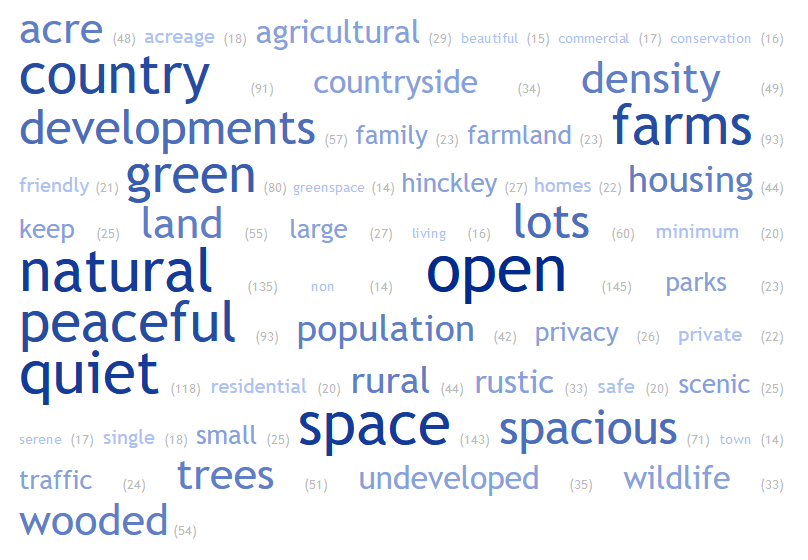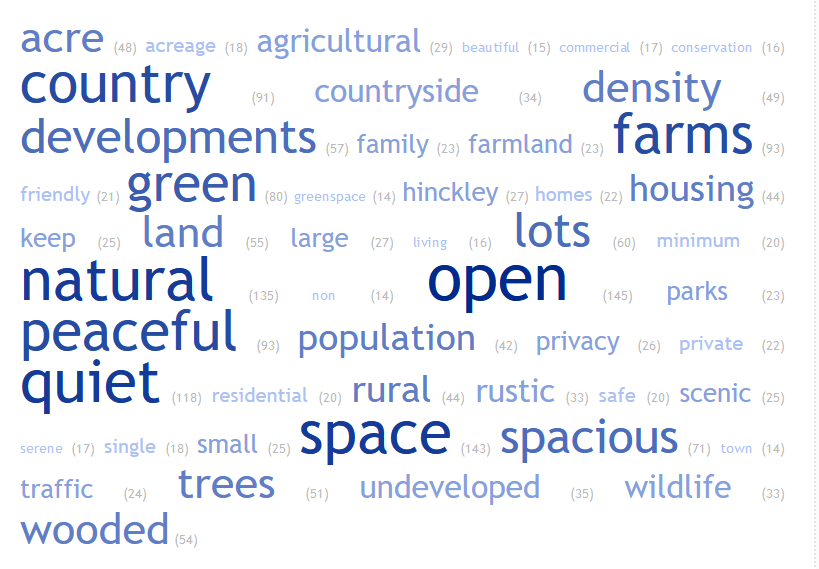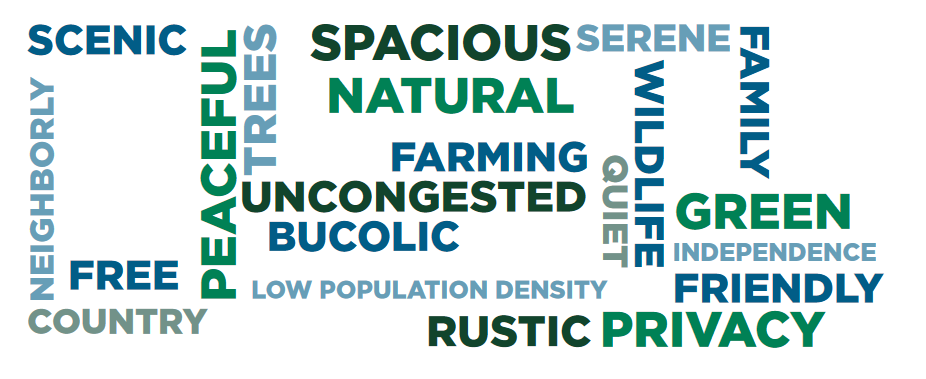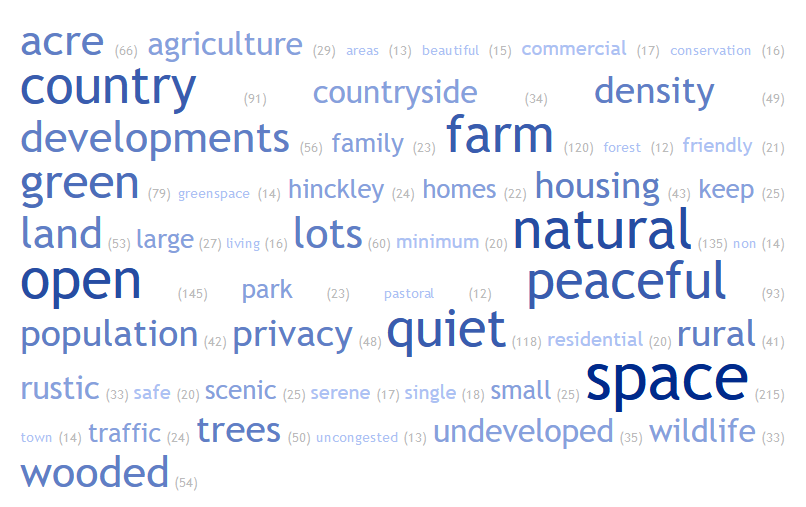There’s a movement in my community to “save” it — save it from developers who see hundreds of rural acres as the perfect place to make a load of money building and selling homes on small lots. And probably save it from people who move into a development surrounded by hundreds of rural acres and want to complain that cow poo smells bad — not something I’ve heard of here yet (which could just be that no one’s said it to me), but a friend of mine lived in a development that overlooked a scenic dairy farm. People bought into what almost amounts to agrotourism in my head — look at that pretty chuck of Americana over there. And you get to live right next to it! Aaaand then some people from the development tried to get local regulations changed to stop dairy farming because, well, animal poo does stink. Luckily Ohio has right-to-farm laws that protect farmers in these types of situations — unless you’re really outside industry practices and have an especially stinky farm, you don’t get shut down just because the development that moved in next door doesn’t want to smell cows.
It’s one thing to buy a couple hundred acres of your own and not develop it. Easy enough — don’t develop it! It’s another think altogether to buy two or three acres and not want any of the surrounding land to be developed. Not impossible if you are lucky enough to pick up property next to a park or something. But a tough ask when surrounded by other residential homeowners. Which is why I think a bigger part of the movement is an attempt to protect rural areas from mass agro. I don’t think many farmers approaching retirement actively want to sell their couple hundred acres to a developer. What they want is to cash out millions of dollars from their land to fund their retirement. An understandable desire. Many farmers I know would love to have kids that are interested in taking over the farm after they retire. But the reality that I see within small-scale farming is having a second job to pay for the farm. Maybe my experience if skewed because I work in IT — it’s a field that’s great for contract work, so people can work a few contracts during less busy farming seasons and focus on the farm in spring and autumn. But I don’t know anyone who literally makes their entire income from farming. Retired people who make extra money farming. IT folks who subsidize the farm. There’s a chap we follow on YouTube who left an architectural firm — they seem to live on their farm proceeds, but I don’t actually know him.
My point being? I think a big part of sustaining rural communities has got to be changing how we shop for food. Changing how restaurants source food. If some mass agriculture company grows corn on ten thousand acres and sells it at four bucks a bushel … we’ve got to value the small rural farmer enough to be willing to pay maybe six or seven bucks a bushel that provides a sustainable income for the farmer. That would also create an environment in which farmers who want to retire would have people who look at purchasing the farm as a viable small business opportunity. Instead of a developer being the only realistic option — seriously, who wants to be destitute in retirement so someone else can enjoy a couple hundred acres of undeveloped property!?



